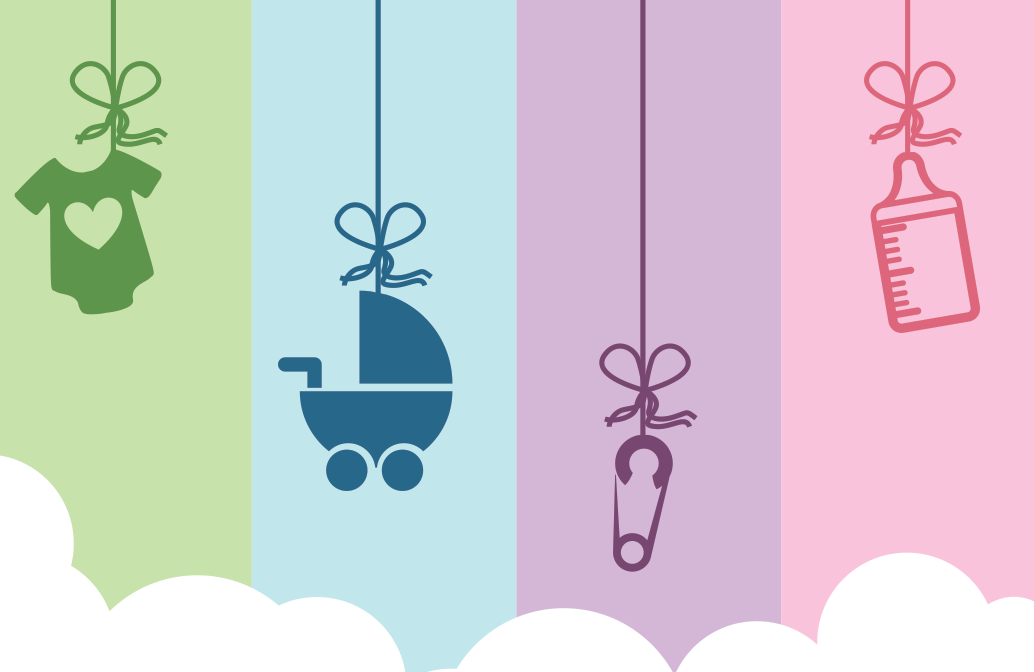How To (Not) Help A New Mommy?
Mommy? Shvigger? Tante? Sister? Sister-in-law? A new baby is born in the family, and the new mommy needs your help. How do you make sure you’re a support and not a burden? Some tips • By Beis Moshiach Magazine • Full Article
Ofrah Badusa, Beis Moshiach
Joy in the family, beyond all measure, a new baby has been born. The first-born son to a first-born daughter… Esty still doesn’t understand, everything is so blurry and confused. The baby looks so wonderful: But what do we do with him? And what about the pain and weakness? She is feeling these emotions within her, and she’s having a bit of difficulty dealing with them… Everyone is charging into the hospital to visit the new mother. On the kallah’s side, the mother comes with baskets of food, diapers, and clothes, entering the room with tremendous excitement. “Esty…” she says with tears in her eyes, and the two embrace without uttering another word.
The truth is that Esty was waiting for her mother come. However, suddenly just ten minutes after she arrived, she already feels the need to be alone; her sense of exhaustion is all-consuming. But how can she tell her mother this without being offensive? She had just traveled several hours to come and visit her… A short while after her mother left, there was a light rapping at the door. “Come in,” Esty said in a tired voice. With quick steps, her mother-in-law entered, while her sisters-in-law came supplied with everything Esty could ever possibly need. Yet, all that Esty wanted to do now was to turn over and go to sleep.
There is no question regarding the sensitive nature of this period; everyone knows about it. Most women remember how much space, quiet, and rest they would need at such a time. However, when women become grandmothers, they somehow – and quite often – are hit by a wave of forgetfulness. Something about this emotional situation doesn’t always enable them to see what a new mother really needs, and this tendency leads to things that don’t necessarily go so smoothly…
I have decided to try and outline an appropriate chapter on what is permissible, what is forbidden, what is needed, and what is unnecessary…the main thing is that it should be in a good and auspicious hour!
Try to come at times that are convenient for the recuperating mother. And when you arrive, be sensitive to what’s happening around her… If there’s a pile of laundry, you can offer to fold it, if the baby has just dozed off, send the mother to go to sleep. When she wakes up and finds several pots cooking on the stove, she will be more than grateful…
When you come, it would be best if you kept your opinions on any or all subjects to a minimum. In particular, avoid statements such as “You obviously nurse the baby, don’t you?” or “Why is he crying? He’s obviously hungry, your milk isn’t enough! Add some supplements for him!”, or “Maybe put another layer on him, it seems to me that he’s cold.”
Hold back, even if you have lots of experience. Understand that a new mother is trying to find her own personal path in a flood of information and experience. She goes nights without sleep and doesn’t always have the time to hear ideas, some of which have no relevance to her. More than anything else, what a woman after birth needs is the feeling that she knows what’s she’s doing. This must be strengthened as much as possible. You can offer advice if she needs it. Rest assured, she will know how to use the suggestion, and if the initiative comes her, she will be a proper vessel to accept your advice.
Don’t convey indirect message through her husband or in some other manner. This can harm her shalom bayis at a time that is most challenging for her in any case.
Even if you have plenty of time and not too many grandchildren, be attentive to the ability of the new mother to endure numerous visits. No two mothers after birth are the same. There are those who desperately need quiet and a sense of control over their own lives. Others find these visits most important, and when the mother is alone, she can feel depressed and despondent. Try and determine the true state of her emotional well-being.
A couple after the birth of a new baby needs help and support from their families. Physical help to watch the child, help on the home front, and emotional help. Above all, there is a clear need for warm and good relations within the family. It’s also important for the new mother to receive proper guidance and to know how to give to family members coming to be a part of the process. Quite often, it’s appropriate to have an open discussion on how she feels and what she’s going through, keeping in mind that we should do this with additional sensitivity. As a part of this wondrous time, those closest to the new mother need to exercise greater “iskafia.” Don’t say whatever you want, see what’s proper, do only what’s absolutely necessary, and make more space for those who really need it. However, this is what brings the blessing, as the Alter Rebbe writes in Tanya, through “iskafia” you can draw the precious Divine light down into the lower worlds – “the honor of the Holy One, Blessed Be He, is revealed in all worlds”…
Then it will be worth it. You’ll preserve your good relations with her and even light up the world.
B’hatzlacha!
*
The magazine can be obtained in stores around Crown Heights. To purchase a subscription, please go to: bmoshiach.org
124
Join ChabadInfo's News Roundup and alerts for the HOTTEST Chabad news and updates!










































